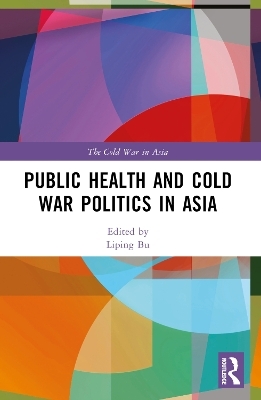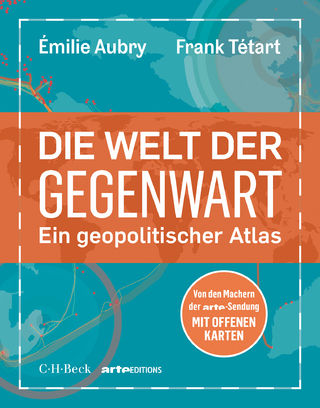
Public Health and Cold War Politics in Asia
Seiten
2024
Routledge (Verlag)
978-1-032-33093-8 (ISBN)
Routledge (Verlag)
978-1-032-33093-8 (ISBN)
- Lieferbar (Termin unbekannt)
- Versandkostenfrei
- Auch auf Rechnung
- Artikel merken
Bu and her contributors illustrate the complexity of tensions and negotiations in the development of different types of public health systems in Asia during the early Cold War. An essential read for historians and policy-makers of public health, and historians of Asia during the Cold War.
Bu and her contributors illustrate the complexity of tensions and negotiations in the development of different types of public health systems in Asia during the early Cold War.
Competing models of development with different political ideologies and economic enterprises increasingly influenced Asian countries in their efforts to build modern nations after World War II. Looking at examples from China, Japan, South and North Korea, India, and Indonesia, the contributors to this volume look at how a range of Asian countries handled this postcolonial challenge. Health became a pivotal area that sustained the political discourse of differentiating one type of society from the other and promoting each system’s advantages over the other’s during the Cold War. Central to the discourse of a just society and the well-being of citizens was the promotion of public health and welfare for the people. The right to health was considered a fundamental human right as well as an essential social justice. A healthy population was also a prerequisite for national economic prosperity. Public health in postwar Asia was, therefore, a sociopolitical matter as well as a concern for the well-being of individuals. The health of the people demonstrated the advancement of a nation and provided the insurance for economic productivity and national prosperity.
An essential read for historians and policymakers of public health and historians of Asia during the Cold War.
Bu and her contributors illustrate the complexity of tensions and negotiations in the development of different types of public health systems in Asia during the early Cold War.
Competing models of development with different political ideologies and economic enterprises increasingly influenced Asian countries in their efforts to build modern nations after World War II. Looking at examples from China, Japan, South and North Korea, India, and Indonesia, the contributors to this volume look at how a range of Asian countries handled this postcolonial challenge. Health became a pivotal area that sustained the political discourse of differentiating one type of society from the other and promoting each system’s advantages over the other’s during the Cold War. Central to the discourse of a just society and the well-being of citizens was the promotion of public health and welfare for the people. The right to health was considered a fundamental human right as well as an essential social justice. A healthy population was also a prerequisite for national economic prosperity. Public health in postwar Asia was, therefore, a sociopolitical matter as well as a concern for the well-being of individuals. The health of the people demonstrated the advancement of a nation and provided the insurance for economic productivity and national prosperity.
An essential read for historians and policymakers of public health and historians of Asia during the Cold War.
Liping Bu is Reid-Knox Chair Professor and Chair of the History Department at Alma College, USA.
Introduction 1. "Taking Our Own Road:" Building the People’s Health in Socialist China 2. Public Health as an Ideology for Socialistic Transformation of the Environment in North Korea, 1945-1961: The Case of Paragonimiasis Eradication 3. Towards Economic Growth: The Development of Public Health Activities in South Korea from 1961–1988 4. Health Insurance Policy and Its Stakeholders in Japan during the Cold War: Toward the Introduction of Universal Health Care 5. Foreign Aid, Virus Research and Preventive Medicine in India during the Cold War: 1950-1962 6. Indonesian Health Policy Between the Old and the New Orders, 1949-1998
| Erscheinungsdatum | 06.09.2023 |
|---|---|
| Reihe/Serie | The Cold War in Asia |
| Zusatzinfo | 1 Halftones, black and white; 1 Illustrations, black and white |
| Verlagsort | London |
| Sprache | englisch |
| Maße | 156 x 234 mm |
| Themenwelt | Geschichte ► Allgemeine Geschichte ► Zeitgeschichte |
| Geisteswissenschaften ► Geschichte ► Regional- / Ländergeschichte | |
| Medizin / Pharmazie ► Gesundheitswesen | |
| Studium ► Querschnittsbereiche ► Prävention / Gesundheitsförderung | |
| Sozialwissenschaften ► Soziologie | |
| ISBN-10 | 1-032-33093-7 / 1032330937 |
| ISBN-13 | 978-1-032-33093-8 / 9781032330938 |
| Zustand | Neuware |
| Informationen gemäß Produktsicherheitsverordnung (GPSR) | |
| Haben Sie eine Frage zum Produkt? |
Mehr entdecken
aus dem Bereich
aus dem Bereich
Gewalt, Umwelt, Identität, Methode
Buch | Softcover (2024)
Spector Books OHG (Verlag)
CHF 49,95


